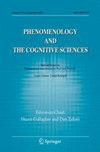Mental measurement and the introspective privilege
IF 1.9
1区 哲学
0 PHILOSOPHY
引用次数: 0
Abstract
Abstract According to a long-standing belief, introspection provides privileged access to the mind, while objective methods, which we denote as “extrospection”, suffer from basic epistemic deficits. Here we will argue that neither an introspective privilege exists nor does extrospection suffer from such deficits. We will focus on two entailments of an introspective privilege: first, such a privilege would require that introspective evidence prevails in cases of conflict with extrospective information. However, we will show that this is not the case: extrospective claims can prevail in cases of conflict. These conflicts are resolved by an inference to the explanation that best accounts for the available evidence. This explanation may speak in favor of extrospection. Second, given an introspective privilege, the development of extrospective measurement techniques should be restricted by the accuracy of introspective reports. We will argue that this problem is part of a more general issue that comes up with the establishment of measurement in the natural sciences. We will identify three strategies that have proven successful in dealing with the problem in the natural sciences. It will turn out that all these strategies are available for extrospective measurement as well. Consequently, the insufficiencies of introspective reports do not impose a limit on the accuracy of extrospective measurement methods. We conclude that neither an introspective privilege nor basic extrospective deficits exist. This does not mean that extrospection will ever replace introspection. Rather, both approaches provide independent and indispensable forms of epistemic access to the mind.心理测量和内省特权
长期以来,人们一直认为,内省提供了通往心灵的特权,而客观方法,即我们所说的“外向”,则存在基本的认知缺陷。在这里,我们将论证既不存在内省的特权,也不存在外向型的缺陷。我们将重点关注内省特权的两个必要条件:首先,这种特权要求内省证据在与外省信息冲突的情况下占上风。然而,我们将证明情况并非如此:在冲突的情况下,外向的说法可以占上风。这些冲突是通过对最能解释现有证据的解释的推断来解决的。这种解释可能有利于外向性。其次,鉴于内省特权,内省测量技术的发展应该受到内省报告准确性的限制。我们将论证,这个问题是随着自然科学中测量的建立而出现的一个更普遍的问题的一部分。我们将确定在处理自然科学问题方面已被证明成功的三种策略。结果是,所有这些策略都适用于外向性测量。因此,内省报告的不足并不会限制外省测量方法的准确性。我们得出结论,既不存在内省特权,也不存在基本的外省缺陷。这并不意味着外向会取代内省。相反,这两种方法都提供了通往心灵的独立且不可或缺的认知途径。
本文章由计算机程序翻译,如有差异,请以英文原文为准。
求助全文
约1分钟内获得全文
求助全文
来源期刊

Phenomenology and the Cognitive Sciences
PHILOSOPHY-
CiteScore
5.00
自引率
8.70%
发文量
72
期刊介绍:
Phenomenology and the Cognitive Sciences is an interdisciplinary, international journal that serves as a forum to explore the intersections between phenomenology, empirical science, and analytic philosophy of mind. The journal represents an attempt to build bridges between continental phenomenological approaches (in the tradition following Husserl) and disciplines that have not always been open to or aware of phenomenological contributions to understanding cognition and related topics. The journal welcomes contributions by phenomenologists, scientists, and philosophers who study cognition, broadly defined to include issues that are open to both phenomenological and empirical investigation, including perception, emotion, language, and so forth. In addition the journal welcomes discussions of methodological issues that involve the variety of approaches appropriate for addressing these problems. Phenomenology and the Cognitive Sciences also publishes critical review articles that address recent work in areas relevant to the connection between empirical results in experimental science and first-person perspective.Double-blind review procedure The journal follows a double-blind reviewing procedure. Authors are therefore requested to place their name and affiliation on a separate page. Self-identifying citations and references in the article text should either be avoided or left blank when manuscripts are first submitted. Authors are responsible for reinserting self-identifying citations and references when manuscripts are prepared for final submission.
 求助内容:
求助内容: 应助结果提醒方式:
应助结果提醒方式:


